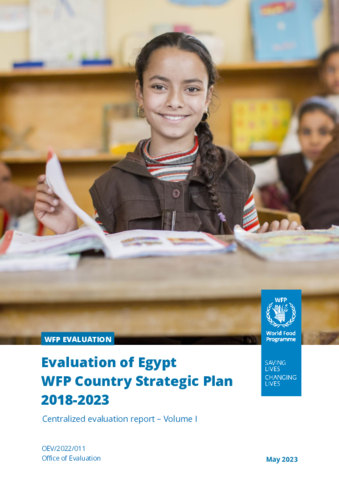
The evaluation was commissioned by the Office of Evaluation to provide evaluative evidence for accountability, learning and to inform the design of the next CSP in Egypt
It covers WFP activities implemented from 2018 to March 2022.
It was conducted between November 2021 and November 2022 to assess WFP’s strategic positioning and role and the extent to which WFP made the strategic shift expected by the CSP; WFP’s contributions to strategic outcomes; efficiency and factors that explained WFP performance. The main users for this evaluation are the WFP Egypt Country Office, the Regional Bureau in Cairo, WFP headquarters technical divisions and a range of external stakeholders.
The evaluation concluded that:
- WFP has supported the government in Egypt on child and maternal nutrition, food security of refugees, the response to climate change and the use of technology and innovation. It is on track to achieving CSP outputs and outcomes.
- However, a fragmented approach to identifying and delivering interventions, alongside donor preferences, risk limiting overall performance.
- Use of national beneficiary identification systems helped ensure sustainability, but WFP’s own capacities to identify the most vulnerable were not fully used.
- Strong partnerships with government helped mainstream WFP’s activities into national systems but created challenges for cost efficiency and in reaching the most vulnerable.
- Limited human and financial resources hampered the monitoring of activities, AAP and gender mainstreaming. Monitoring data were not fully utilized.
- Sustainability of WFP activities is threatened by an unclear funding scenario, with ramifications particularly for resilience-building interventions



